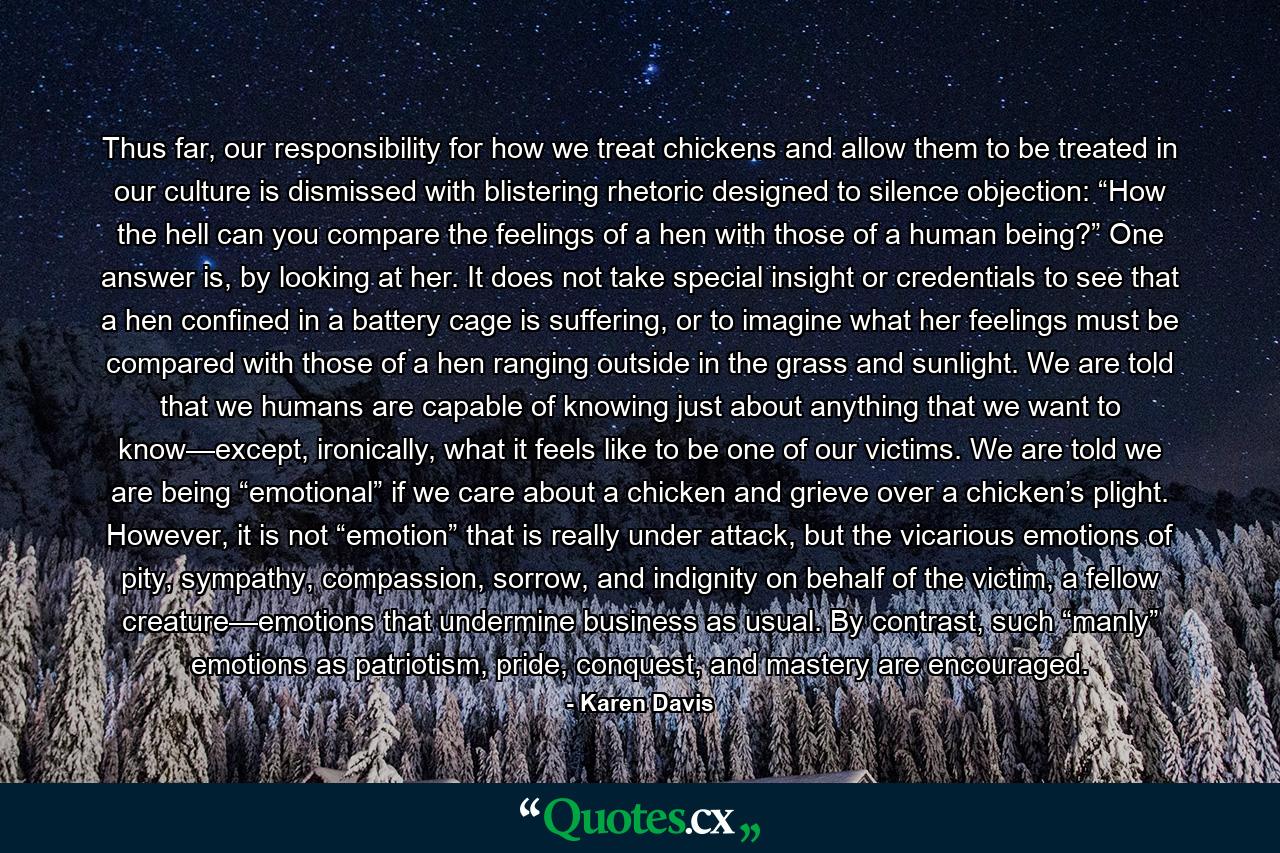Thus far, our responsibility for how we treat chickens and allow them to be treated in our culture is dismissed with blistering rhetoric designed to silence objection: “How the hell can you compare the feelings of a hen with those of a human being?” One answer is, by looking at her. It does not take special insight or credentials to see that a hen confined in a battery cage is suffering, or to imagine what her feelings must be compared with those of a hen ranging outside in the grass and sunlight. We are told that we humans are capable of knowing just about anything that we want to know—except, ironically, what it feels like to be one of our victims. We are told we are being “emotional” if we care about a chicken and grieve over a chicken’s plight. However, it is not “emotion” that is really under attack, but the vicarious emotions of pity, sympathy, compassion, sorrow, and indignity on behalf of the victim, a fellow creature—emotions that undermine business as usual. By contrast, such “manly” emotions as patriotism, pride, conquest, and mastery are encouraged.
